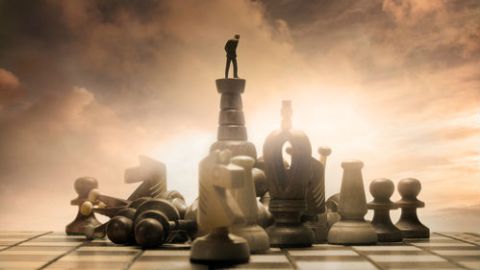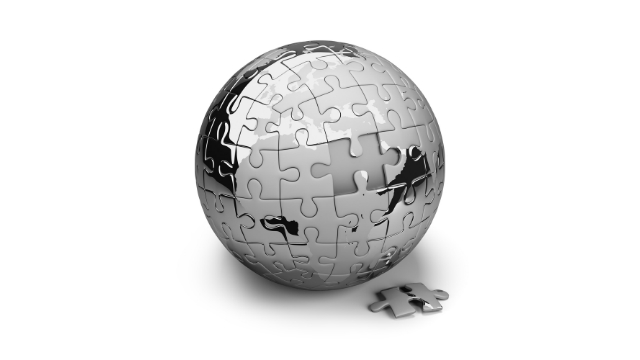Let the Games Begin: Introducing “Power Games”

Near the end of his 2001 book, Does America Need a Foreign Policy?, Henry Kissinger quotes Otto von Bismarck’s observation about the limits of diplomacy: “The best a statesman can do is to listen to the footsteps of God, get a hold of the hem of His cloak, and walk with Him a few steps of the way.”
I suspect that Bismarck would revise his quip if he were alive today, maybe as follows: “The best a statesman can do is to avoid getting crushed by God’s stomps, find out where He hides his cloak, and make an educated guess as to where He is going.”
I don’t mean to be blasphemous. The point is that, in crucial ways, keeping pace with what’s going on in the world is much harder today than it was in the 19th century—not only for the seasoned diplomat, but also for the lay observer. We live in an era of 24/7 news. Real stories and fake ones traverse the world instantaneously, thanks to Facebook, Twitter, YouTube, and the like. Commentators face overwhelming pressure to respond to events as soon as they happen. Indeed, today’s Internet-driven marketplace of ideas prioritizes the speed with which commentary is issued over the quality of the analysis that it contains. Add up all of these elements, and it can be next to impossible to separate noise from signal when searching for insight.
Perhaps because so much attention is paid to what happens on a day-to-day basis, we tend to focus more on given events than on the context in which they occur. From a bird’s-eye view, those events often result from, and serve to reinforce, longstanding trends. From a worm’s-eye view, it can seem as if we’re simply bouncing chaotically from one shock to the next.
Most people would identify at least three global shocks in the past decade: 9/11, the global financial crisis of 2008-09, and the revolutions that swept through the Middle East and North Africa. There are at least two types of refrains that invariably accompany these types of events.
Yes and no. Consider the global financial crisis. It’s true that no one predicted the collapse of Lehman Brothers on September 15, 2008, which precipitated it. Many, however, had been warning that such a crisis could occur. To take just one of countless examples, the Government Accountability Office (then the General Accounting Office) warned in May 1994 that because a
few major OTC [over-the-counter] derivatives dealers now account for a large portion of trading in a number of markets, the abrupt failure or withdrawal from trading of one of these dealers could undermine stability in several markets simultaneously, which could lead to a chain of market withdrawals, possible firm failures, and a systemic crisis….The interrelationships among OTC derivatives dealers and markets worldwide increase the likelihood that a crisis involving derivatives will be global.
It’s the job (one of the jobs, anyhow) of an analyst to imagine what types of events could occur; that of a psychic to predict how exactly those events will transpire.
As for the second refrain, the global financial crisis dealt a severe blow to the “Washington Consensus.” It also changed the psychological balance between the U.S. and China, the latter of which had capped off a spectacular Summer Olympics only three weeks before Lehman’s implosion. Zooming out a bit, however, one could argue that it simply reinforced doubts about the soundness of hyperfinancialized capitalism that had been brewing for some time; that it simply accelerated a shift of power and influence from West to East that had been underway since the rise of the Asian Tigers.
The above is a long way of justifying the focus of this blog: while I’ll highlight the events of the day, I’ll try to do so within the context of major, ongoing trends. It’s those trends—military, economic, political, and so forth—that will ultimately determine how all seven billion of us work, compete, and live. To that end, here are some of the questions that I’d like to grapple with in this space:
Lest “Power Games” turn into a soapbox, however, I’ll regularly ask commentators from around the world to share their thoughts. I also hope that you, the reader, will play a key role in shaping how this blog evolves—not only by (vigorously!) questioning and countering points that I make, but also by telling me what topics and questions interest you.
Please reach out to me with any suggestions that you have ([email protected]).
Let the games begin.
Follow Ali Wyne on Twitter and Facebook.
Photo Credit: Shutterstock.com





